Tuesday Again Jokes Tuesday Again Background
The jokes that accept made people laugh for thousands of years
(Image credit:
Getty Images
)
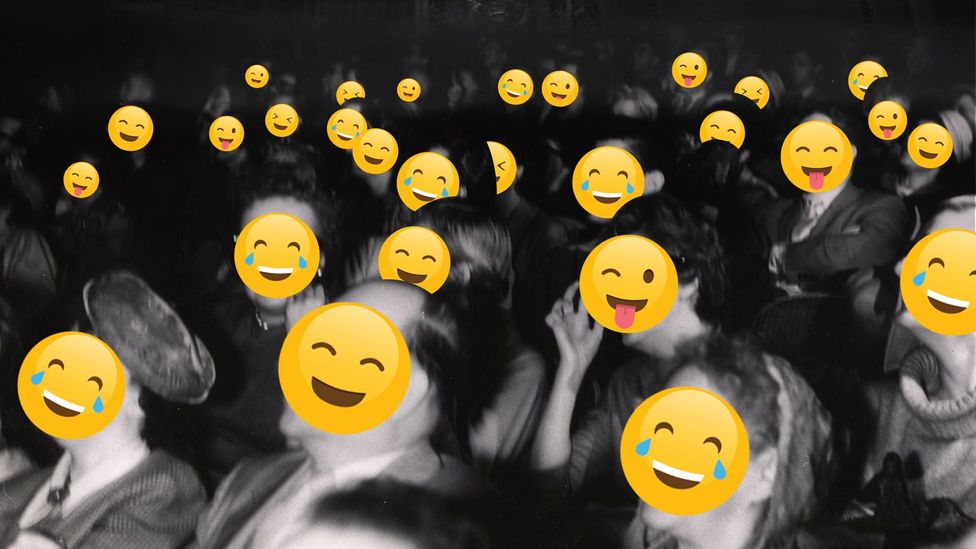
The phrase "the onetime ones are the all-time ones" might non always exist true. But some of the oldest jokes in history are nonetheless in use today. What makes a good joke? It's worth going back a few thousand years to find out.
A
After months spent poring over medieval texts for her PhD, Martha Bayless made a surprising discovery. She was looking at some of the earliest jokes written in Latin by Catholic scholars (some in excess of 1,000 years quondam). Few had e'er been translated into English before, yet many were still funny – and some even fabricated her laugh out loud.
Before long after, while waiting for her train, Bayless was reading a re-create of Truly Tasteless Jokes 3 – a popular joke anthology from 1983. She was surprised to find, almost word for word, a joke that she had been transcribing but a day earlier.
The joke lives up to the "truly tasteless" hope of the book. This is how information technology starts in its 1,000-year-old format: Two men were walking forth a road talking of this and that. "What practise you recall," says one. "Which is more fun, defecating or having sex?"
The other homo ponders the question before coming up with a solution. I'll spare y'all the details, equally it is a piddling rude past today's standards, but it involved seeking the advice of a sexual activity worker.
It struck Bayless that the joke had continued to be shared through a spoken culture of joke-telling, starting with the Latin text and culminating with her modern joke book, without needing to be written down for centuries in between.
There is conspicuously something in this joke that has kept it in apply to this 24-hour interval, even if it is crass past today's standards. Simply what is it that is withal tickling audiences through the centuries? And will some modern jokes still be funny for thousands of years to come? As a one-act writer for BBC Radio 4, I was interested to find out.
It seems that there are recognisable features in even the earliest written jokes. National Public Radio (NPR) in the Us suggested in 2016 that the oldest recorded joke is from Bronze Age Sumeria (an early Mesopotamian civilisation dating 3300-1200BC). The joke goes: "What has never happened since fourth dimension immemorial? A young married woman has non farted on her husband'southward lap."
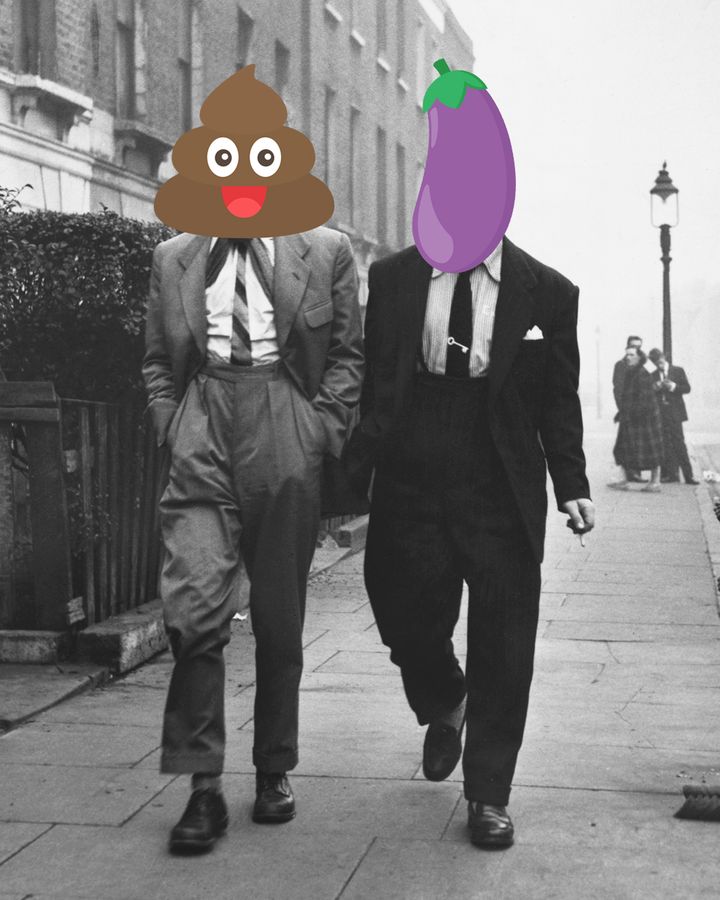
The primeval jokes nosotros accept on record suggest that crude jokes stand up the test of time (Credit: Javier Hirschfeld/ Getty Images)
Needless to say, this joke wouldn't pack out comedy clubs today. Still, it is striking that the earliest recorded joke is about toilet humour. The comic fixation with the crude, bodily and downright scatological is no mod invention, but instead is mutual in humour across cultures and time.
Bayless, now a director of folklore and public civilization at the University of Oregon, has written a number of books on early comedy. She says, "the earliest jokes were dingy jokes. People couldn't resist them."
Flatulence, for instance, is funny because it shows our "uncontrollable physicality", says Anu Korhonen, a professor of cultural studies from the University of Helsinki in Finland.
She adds the function of farts in early jokes was to represent our shared humanity and the equality of people, in an interview for the university magazine. Flatulence affects everyone – no one can help it.
Some researchers advise that considering humour brings united states together information technology might have an evolutionary purpose. Perhaps our ability to brand lite of bad situations helped us to overcome them – past joining together in laughter, we were able to reinforce our social bonds. Some scholars betoken to the existence of teasing-similar behaviours in primates like chimpanzees as evidence of an early evolutionary origin of humor in humans. However, captive animals could be copying behaviours they have seen in united states of america.
Just not all rude jokes translate well beyond cultures. Peter McGraw, a professor of marketing and psychology at the University of Colorado Boulder, explains that cultural norms vary then widely, finding a universally funny joke is challenging. "Even something like belching has a cultural element," he says. "In some cultures, to belch at the table is highly offensive. If your kid does it, you might laugh because they don't know any improve. In other cultures, it might mean 'Thanks, that was a wonderful repast'."
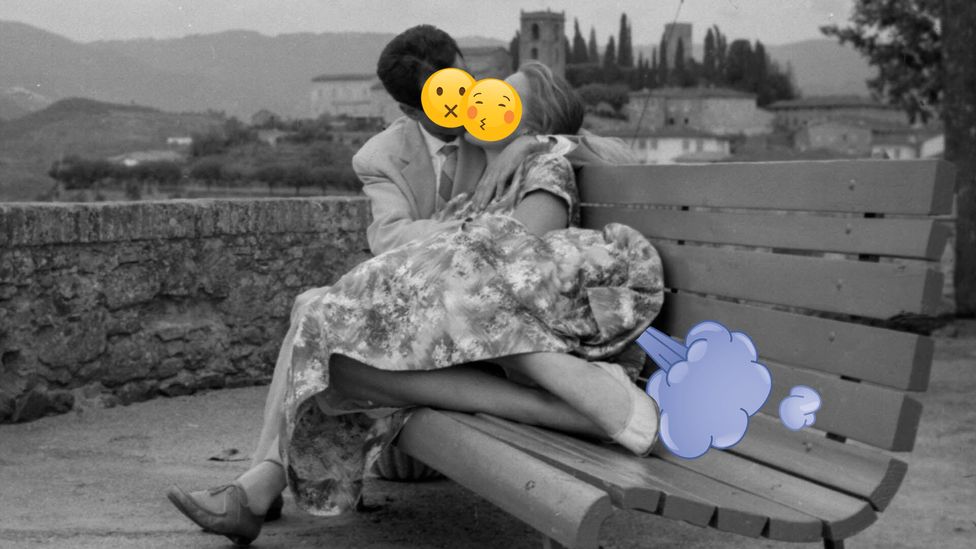
If the oldest joke in the volume actually is the example from Statuary Historic period Sumeria of a young farting wife, information technology's not very funny any more than (Credit: Javier Hirschfeld/ Getty Images)
By the medieval catamenia, many jokes were so rude you might exist forgiven for assuming that they originated in bawdy inns and the less salubrious corners of order. But that is not the example at all, says Bayless. "It used to be idea that you had the official level of the [Catholic] Church that was very effete and dignified, and people off in [general guild] making jokes – when y'all practise more investigation you find that it'south the important people making the jokes as well."
Country of Play
Exterior schools effectually the globe yous will come across children playing tag (or maybe you called information technology tig, tips, it or bulldog), or perhaps a singing game, sport or imaginative play. It doesn't crave wealth or education – where children have time, they volition find a way to play – and it'south not unique to humans either. So, what practise we need play for? Why do we stop playing when we abound up? And should adults play more?
This article is function State of Play, a series from BBC Time to come on the benefits of embracing playfulness. You might as well be interested in some of the other manufactures:
- Why playing games is healthy
- How top esports talents are plucked from obscurity
- Why are some people compelled to cheat at games?
Bayless has found that many of the oldest written jokes were scribbled in the margins of ornate early Latin Bibles. Even in a culture where just academic and religious elites could read and write, early on Church scholars were busy entertaining each other with smutty comments.
Jokes in the times of all-powerful medieval monarchs were a risky business. Bayless recounts a story where a joke fell foul of English king Richard I. "2 men had been ridiculing the king at a drunken feast – the king was furious and summoned the men. Clearly disaster was most to befall the men, but and then 1 of them answered: 'We might have said those things, but that was nothing to what we were going to say if the wine hadn't run out!'"
It was a close shave for the men, as "if they hadn't come up upwardly with such a witty answer, their fate would accept been dire indeed", says Bayless.
There is less risk of being dispatched past an angry monarch these days, but reading the room is still an important skill for a comedian. McGraw says that effective jokes are a "beneficial violation" always walking a frail balancing human action between as well soft and too extreme. The purpose of a benign violation is to elicit laughter and cloy at the same time – which perhaps explains why crude subject matter features and so commonly.
"It explains the two means a joke tin fail," adds McGraw. "That is that it tin can be too benign and as well deadening, like a child'south knock-knock joke. Or information technology can be also much of a violation. It highlights how delicate joke telling is because it's easier to neglect than it is to succeed." So, telling jokes is serious business, and it requires a strong chapters for agreement the audience.
In fact, McGraw suggests that raw intelligence is the most effective indicator for whether someone is funny (of form a one-act writer would say that – Ed.). Among our ancestors, sense of humour indicated that someone had a potent command of their surround. These jokes were fabricated in the context of low life expectancy and a hostile earth. But these fundamentals withal concur in the modernistic day in our approach to relationships, and McGraw says "information technology's of import to recognise how enjoyable it is to spend fourth dimension with someone who is funny, they have the propensity to help you better cope with the difficulties of the world".
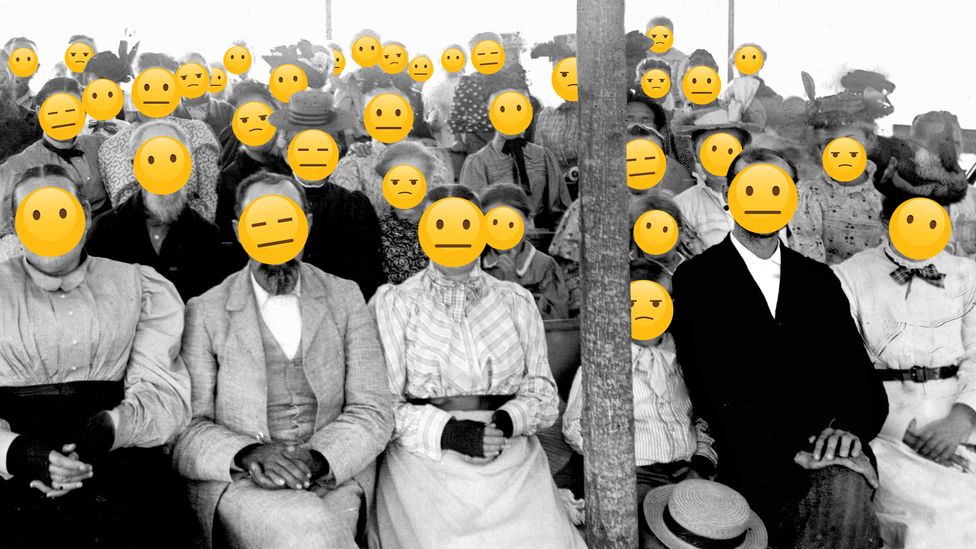
There are two ways a joke tin can neglect: it can exist besides bland or too offensive. A comedian must aim for a joke that is a "beneficial violation" (Credit: Javier Hirschfeld/ Getty Images)
For example, jokes aid us to subvert emotional states. When dealing with difficult subject field matters, a funny punchline tin distract u.s. from the negative emotions.
And what nearly the gimmicky panic most "cancel civilisation" in comedy? For McGraw, this is not such a unique moment in history.
"This miracle has been happening ever since there has been stand-upwards comedy," he says. Every bit the two jesters from Richard I's court demonstrate, one-act has e'er been risky, and the ability has always ultimately rested with the audience.
"What is wrong and what is OK is determined non by the teller, but by the audience member, by the receiver, and by their mood, the context they're in, the number of drinks they've had, their civilisation, their identity," continues McGraw.
If the power rests with the audition, the comedian has a tricky task in pleasing them. Stand-up comedian Catherine Bohart knows this pressure well. "The psychology of an audience is really interesting because [if] you seem fine, they are willing to trust you," she says. "But if you are being vulnerable, they can sniff out that anxiety and vulnerability."
It is an unusual arrangement to be commanding so much attending for such a long fourth dimension, and audiences demand value. Bohart is currently touring across the UK and Ireland, and she agrees with McGraw that, while there may exist common themes across thousands of years of comedy, there is no single bit of stand-upward textile that works 100% of the time. Stand-up comedy is risky precisely because the comedian faces a fresh set of audience members to win over each time.
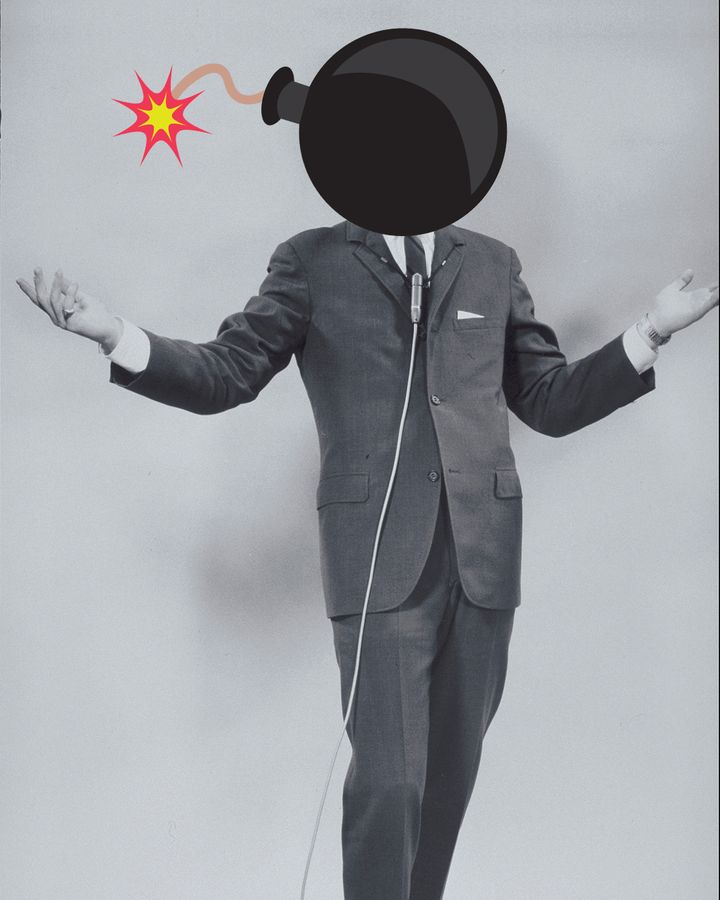
The power in comedy rests with the audition – they decide what is funny and what is offensive (Credit: Javier Hirschfeld/ Getty Images)
Bohart says that audience laughter is complicated. "The moment of daze can stifle laughter. Anything we're non supposed to laugh at: death, mental health, brutal self-deprecation. People tin can shy away from laughing out loud."
Stand up-up comedy in recent years has evolved at speed. Kylie Brakeman was one of the early adopters of a new kind of observational one-act that emerged at the showtime of the pandemic. Her to-photographic camera Twitter videos have attracted millions of views and kicked off an era in which the day's events can be parodied inside minutes.
"Information technology'southward insane that nosotros're living in a world where daily Tv set is also slow to keep upwards," says Brakeman. Online comedians are increasingly at the bleeding edge of satire. "If something happened in the news y'all could jump on it right away. It's an reward that online comedians have. Fifty-fifty if yous're writing for a belatedly night show, the joke has already been fabricated 17 times on Twitter earlier the prove airs at dark."
This blazon of modern comedy, which dates in minutes, is a far cry from a joke scribbled in the margins of a Latin text, which needed to remain funny for the next scholar at whichever time they stumbled beyond information technology.
With this accelerated product process comes a different gear up of risks. Just with an audition of millions kept backside a screen, "bombing" online feels less catastrophic. Brakeman says, "If people like it, then they like it. And if they don't, they're really not thinking well-nigh it that much. I remember it'southward much less of a severe thing than bombing on stage, because it'south just a instance of getting no likes on something."
Who knows what audiences thousands of years in the futurity would remember if they unearthed videos of contemporary comedians. Possibly they will look at the cutting-edge one-act of today and see it much like the Mesopotamian fart joke: lacking in some of the effectively cultural details, merely with fundamentals that stand the exam of time.
*Matt Kenyon is a journalist and comedy writer for 'The Skewer' on BBC Radio iv.
--
Bring together one 1000000 Future fans by liking us on Facebook, or follow us on Twitter or Instagram.
If y'all liked this story, sign upward for the weekly bbc.com features newsletter, chosen "The Essential List" – a handpicked selection of stories from BBC Future, Culture, Worklife, Travel and Reel delivered to your inbox every Friday.
Source: https://www.bbc.com/future/article/20220323-the-jokes-that-have-made-people-laugh-for-thousands-of-years
Post a Comment for "Tuesday Again Jokes Tuesday Again Background"